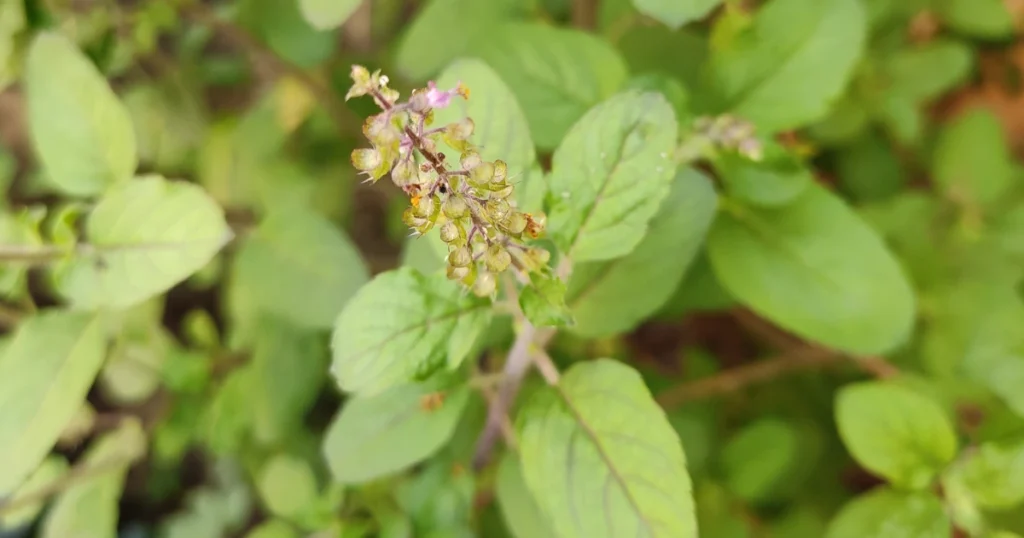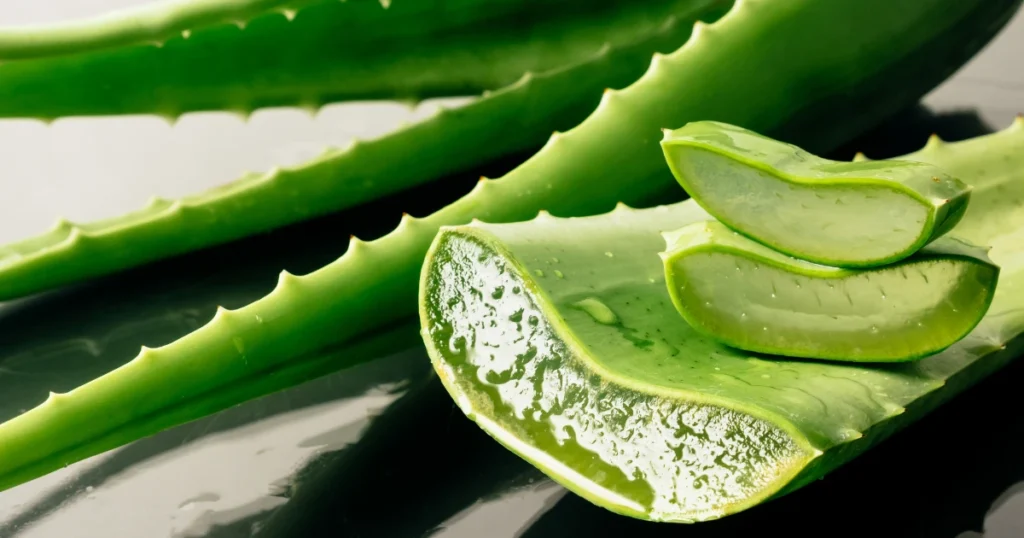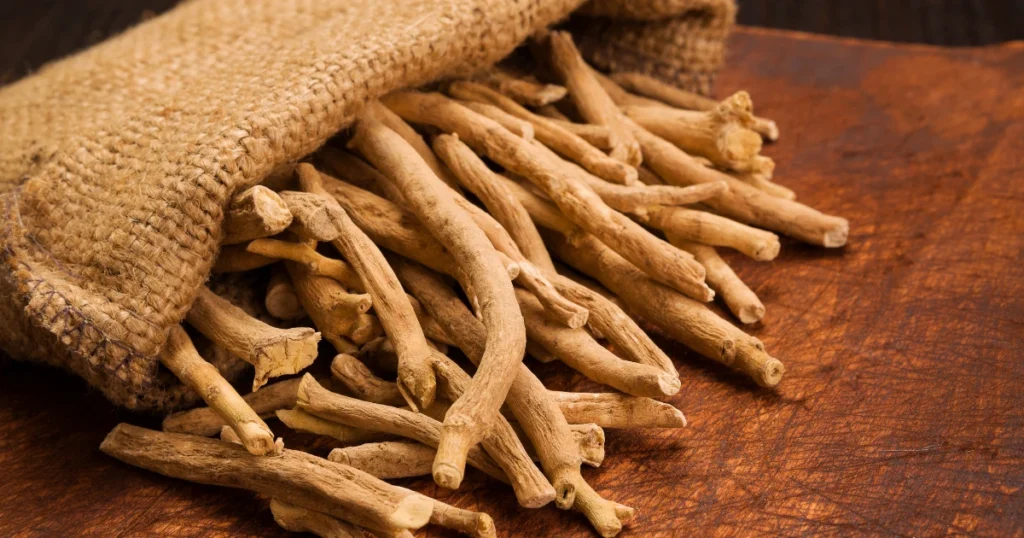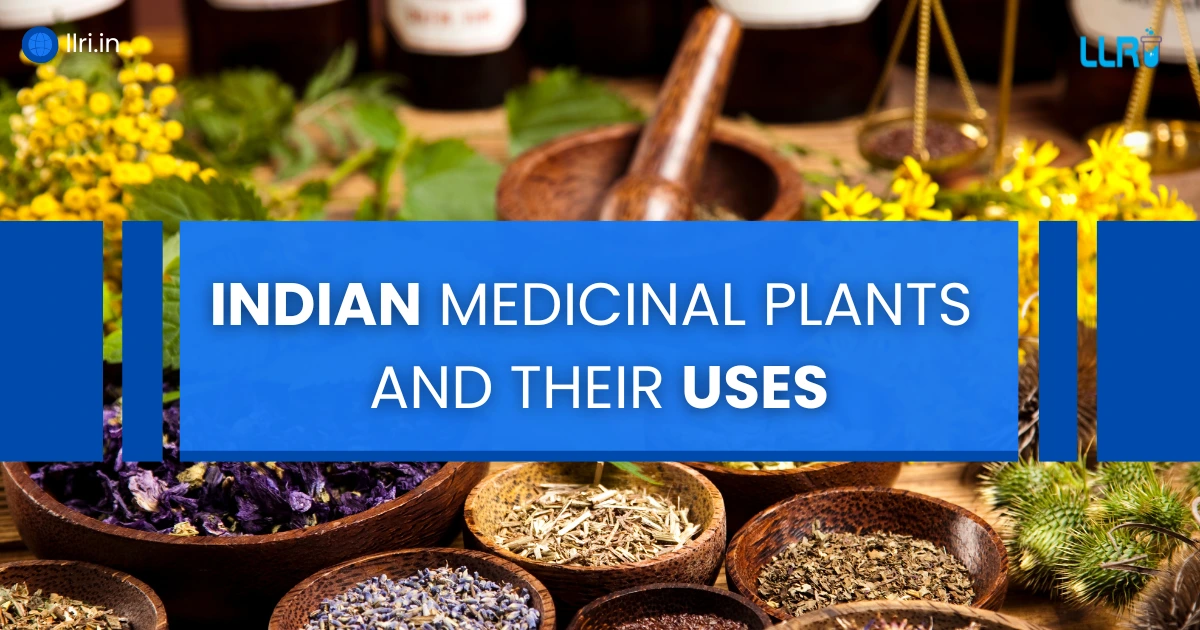5 Medicinal Plants and Their Uses: Modern medicines, as we know now, weren’t there always, I mean, they are called ‘modern’ medicines after all, right? So, what did people do during the ancient times?
The answer lies in nature itself. India has always been known for its deep connection with Ayurveda and herbal healing. The topic of 5 medicinal plants and their uses is not just about plants, it’s about rediscovering a natural lifestyle that our grandparents once lived.
As Acharya Charaka once said in the Charaka Samhita, “There is no plant on this earth which is non-medicinal.” That says a lot about how rich our tradition of herbal medicine truly is.
Let’s explore what are medicinal plants, learn about examples of medicinal plants, and understand the scientific name of medicinal plants that we still use in our daily lives.
What Are Medicinal Plants?
Medicinal plants are those plants that have healing properties and are used to treat or prevent diseases. In simple words, they are nature’s own medicines. These plants have been used in Ayurveda, Unani, and Siddha systems for thousands of years.
In this blog, we’ll look closely at 5 medicinal plants and their uses, plants that you might even find growing near your home!

5 Medicinal Plants and Their Uses
1. Tulsi (Ocimum sanctum)
Scientific name of medicinal plant: Ocimum sanctum
Also called the “Queen of Herbs,” Tulsi is found in almost every Indian household. It is one of the most respected ancient Indian medicinal plants.
Uses:
- Boosts immunity and fights infections.
- Helps with cold, cough, and respiratory problems.
- Improves digestion and reduces stress.
Tulsi leaves are rich in antioxidants. Modern studies by the Journal of Ayurveda and Integrative Medicine confirm its anti-inflammatory and antibacterial effects.
2. Neem (Azadirachta indica)
Scientific name of medicinal plant: Azadirachta indica
Neem is one of the most powerful examples of medicinal plants used in Ayurveda.
Uses:
- Treats skin problems like acne and eczema.
- Acts as a natural blood purifier.
- Neem oil helps in healing wounds and insect bites.
“Neem is the village pharmacy.” A popular Indian saying that reflects how Neem serves multiple healing purposes.

3. Aloe Vera (Aloe barbadensis miller)
Scientific name of medicinal plant: Aloe barbadensis miller
Aloe Vera is well known for its cooling and healing properties. It is one of the most popular ancient Indian medicinal plants used even today in modern products.
Uses:
- Soothes burns and wounds.
- Keeps skin glowing and hydrated.
- Helps in digestion and improves liver function.
Try drinking Aloe Vera juice in the morning for better digestion and clear skin.
Did You Know? The healing properties of Aloe Vera are often studied in modern science through clinical research, which helps us understand how natural compounds can be used safely and effectively.
If you’re curious about how such studies work, you can explore our Clinical Research Course at LLRI, where traditional knowledge meets modern science.
4. Turmeric (Curcuma longa)
Scientific name of medicinal plant: Curcuma longa
Turmeric, or “Haldi,” is not just a spice, it’s a golden healer. No list of 5 medicinal plants and their uses is complete without mentioning turmeric.
Uses:
- Reduces inflammation and joint pain.
- Improves immunity and fights infections.
- Used in skincare to brighten and heal wounds.
According to NIH (National Institutes of Health) studies, curcumin in turmeric has proven anti-inflammatory and antioxidant effects.
5. Ashwagandha (Withania somnifera)
Scientific name of medicinal plant: Withania somnifera
Ashwagandha is one of the oldest ancient Indian medicinal plants, known as the “Indian Ginseng.” It helps the body manage stress and boost strength.
Uses:
- Reduces stress and anxiety.
- Improves strength and stamina.
- Helps in better sleep and boosts brain health.
Ancient Ayurvedic texts describe Ashwagandha as “Rasayana” meaning rejuvenating herb.

Why We Should Learn About Medicinal Plants
If you are wondering what are medicinal plants and why they matter today, the answer is simple: they connect us back to our roots. Using these examples of medicinal plants in our daily life can help us lead a healthier, more natural lifestyle.
Here’s a quick recap of the 5 medicinal plants and their uses:
| Medicinal Plant | Scientific Name | Use |
| Tulsi | Ocimum sanctum | Immunity and respiratory health |
| Neem | Azadirachta indica | Skin and blood purification |
| Aloe Vera | Aloe barbadensis miller | Skin and digestion |
| Turmeric | Curcuma longa | Immunity and healing |
| Ashwagandha | Withania somnifera | Stress and strength |
On A Final Note…
So, in the conclusion of medicinal plants, it is clear that our ancestors knew how to use nature for healing. Today, when we talk about the 5 medicinal plants and their uses, we are not just learning old remedies, we are embracing sustainable living.
So, next time you see a Tulsi or Neem tree, remember, remember – they are not just plants -they are age-old healers with stories, science, and strength! How cool is that, right?
As Ayurveda says, “When diet is wrong, medicine is of no use. When diet is correct, medicine is of no need.”
FAQs
1. What are medicinal plants?
Medicinal plants are natural herbs that have healing properties and are used to prevent or treat diseases.
2. What are the examples of medicinal plants?
Examples of medicinal plants include Tulsi, Neem, Aloe Vera, Turmeric, and Ashwagandha.
3. What is the scientific name of medicinal plants like Tulsi and Neem?
Tulsi’s scientific name is Ocimum sanctum and Neem’s scientific name is Azadirachta indica.
4. What are the uses of 5 medicinal plants?
The 5 medicinal plants and their uses include immunity boost (Tulsi), skin care (Neem, Aloe Vera), healing (Turmeric), and stress relief (Ashwagandha).

